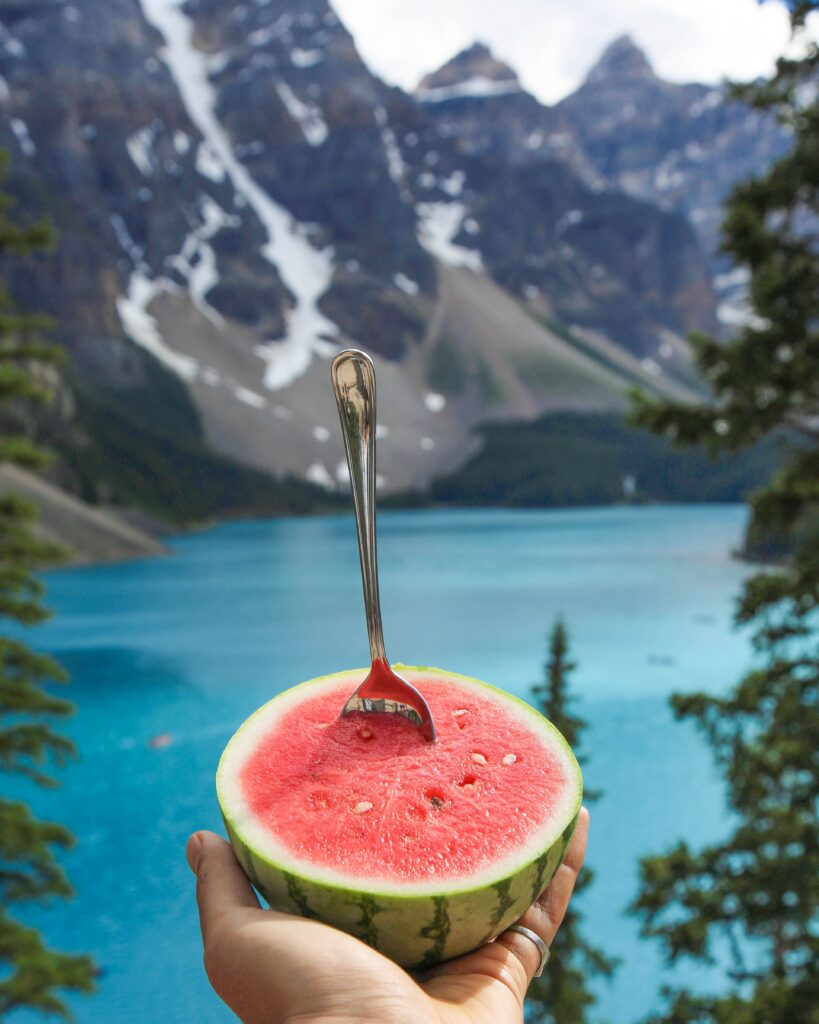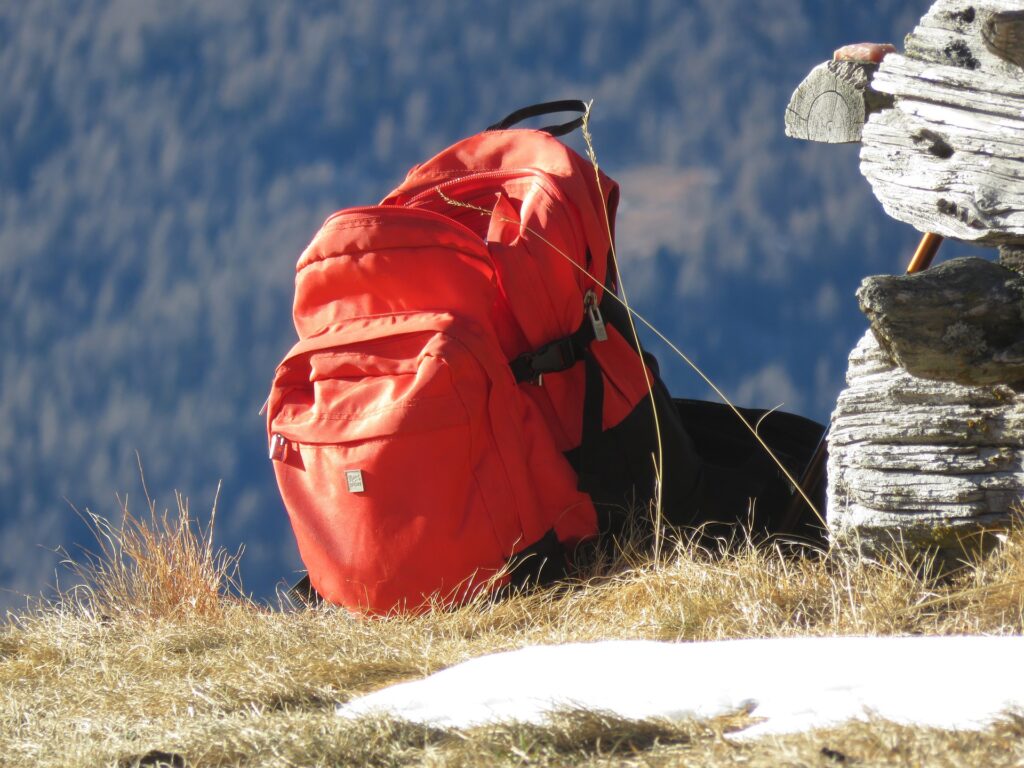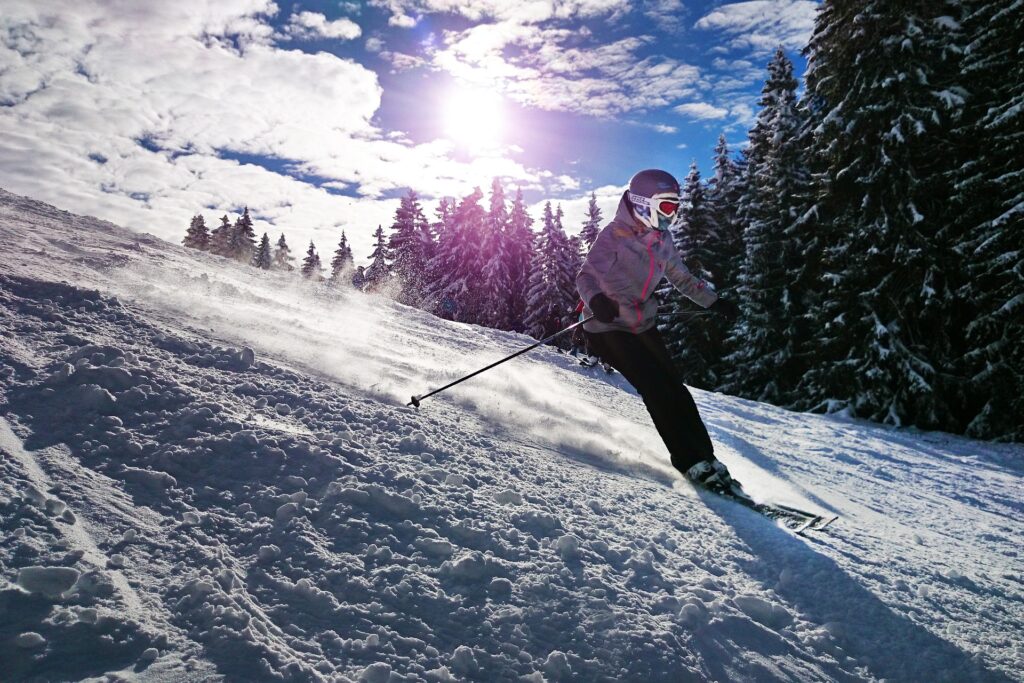Let’s Get Right In!
Embarking on a hiking adventure is one of life’s greatest pleasures. The freedom of the open trail, the stunning vistas, and the serenity of nature all make for an unforgettable experience. However, to truly enjoy your hiking expedition, you need to fuel your body with the right kind of food. In this comprehensive guide, we will explore the best hiking food ideas that will keep you energized, satisfied, and ready for any trail. Whether you’re a seasoned hiker or a newbie to the world of outdoor exploration, this article is here to ensure your journey is as delightful as the destination.
Content Table:
1. Hiking Food 101
2. Types of Hiking Food
3. Conclusion
4. FAQ
Hiking Food 101
Before we dive into the delectable world of hiking food ideas, it’s essential to understand the basics of trail nutrition. Hiking demands a lot from your body, including endurance, strength, and the ability to adapt to various terrains. Therefore, it’s crucial to choose foods that provide you with the right balance of macronutrients and the necessary fuel to keep you going. To optimize your hiking experience, keep these key factors in mind:
- Energy-Dense Foods: On the trail, every ounce counts. Aim for foods that are high in energy and lightweight. This will ensure you have enough calories to keep you going without overburdening your backpack.
- Nutrient Variety: A well-rounded diet is key. Make sure your hiking food ideas cover all the essential nutrients, including carbohydrates, proteins, fats, vitamins, and minerals.
- Hydration: Staying properly hydrated is vital. Pack enough water or invest in a reliable water filtration system if you plan to source water from natural springs.
- Portability: Opt for foods that are easy to pack, store, and consume on the go. Think compact, non-perishable, and hassle-free.
- Taste and Enjoyment: Hiking is not just about survival; it’s about enjoying the journey. Choose foods that you genuinely like and look forward to eating.
Now, let’s dig into the top hiking food ideas to help you plan your next outdoor adventure:
Trail Mix: The Ultimate Hiking Companion

When it comes to the best hiking food ideas, “trail mix” is a top choice. With its perfect blend of sweet and savory, it’s not just a snack; it’s an experience.
- Imagine the road ahead, the sun kissing your skin, and the gentle rustling of leaves in the breeze. What could make this picture even more perfect? A handful of trail mix! It’s the classic hiking companion, and for a good reason.
- The great thing about trail mix is its versatility. You can buy pre-made varieties or create your own to tailor it to your taste buds and dietary needs. The basic ingredients usually include a mix of nuts, dried fruits, seeds, and perhaps a touch of chocolate or other sweets. Nuts like almonds, walnuts, and cashews provide the much-needed healthy fats and proteins, keeping your energy levels steady throughout the hike. Dried fruits, such as raisins, cranberries, and apricots, add natural sweetness and valuable vitamins.
- For a power-packed twist, consider adding a few dark chocolate chips or M&M’s to your mix. The occasional sweet surprise can be a real morale booster on the toughest parts of the road.
- The beauty of trail mix is its simplicity. It’s easy to portion out, store in a resealable bag, and munch on while you walk. You can even customize your blend by incorporating your favorite ingredients, ensuring you’re excited about every bite.
- Whether you’re hitting the local trails for a short day hike or embarking on a multi-day backpacking journey, trail mix is the quintessential hiking food idea that can’t be ignored. Just remember to keep it in an airtight container or resealable bag to prevent it from becoming stale, and always pack out your trash to leave no trace.
Incorporating trail mix into your hiking adventure is an excellent way to maintain energy levels and satisfy your taste buds simultaneously. But let’s not stop at trail mix; there are plenty more delicious and nutritious hiking food ideas to explore.
Energy Bars: Compact Power Packs
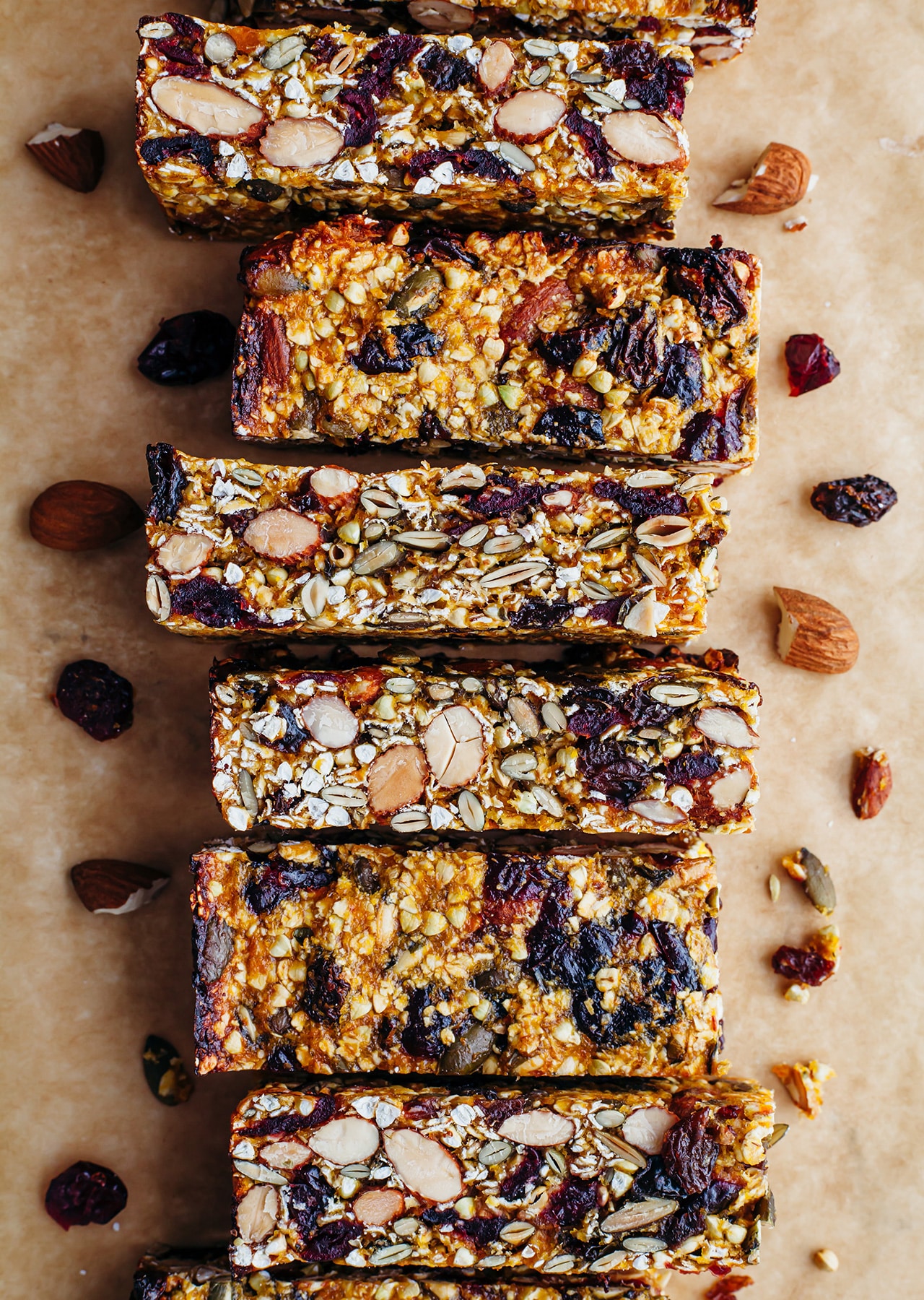
Energy bars are not just compact, they’re the compact power packs that will fuel your hiking journey.
- When you’re out on the road, simplicity is key. Energy bars are designed for this exact purpose. These handy snacks come in a wide variety of flavors and are packed with the essential nutrients and calories you need to keep going. The best part? They’re incredibly lightweight and require no preparation.
- In the world of energy bars, you’ll find a range of options, from granola bars to protein bars. The choice depends on your individual preferences and dietary requirements. If you need an extra protein boost to support muscle recovery during your hike, go for protein bars. On the other hand, if you prefer something with a sweeter, more dessert-like taste, granola bars might be your top pick.
- Many energy bars are specifically formulated for athletes and hikers, so you can rest assured that you’re getting the necessary carbohydrates, proteins, and fats to fuel your adventure. Just be sure to check the ingredient list for any allergens or components you might want to avoid.
- These compact power packs are easy to slip into your backpack or pocket, ensuring you have a quick source of energy whenever you need it. Keep a few different flavors on hand to prevent flavor fatigue and make your hiking experience all the more enjoyable.
- While energy bars can be a convenient option for quick energy boosts, it’s essential to balance them with other foods to ensure you’re getting a variety of nutrients throughout your hike. Mix them in with the other hiking food ideas on our list for the best results.
Dehydrated Meals: Gourmet on the Go
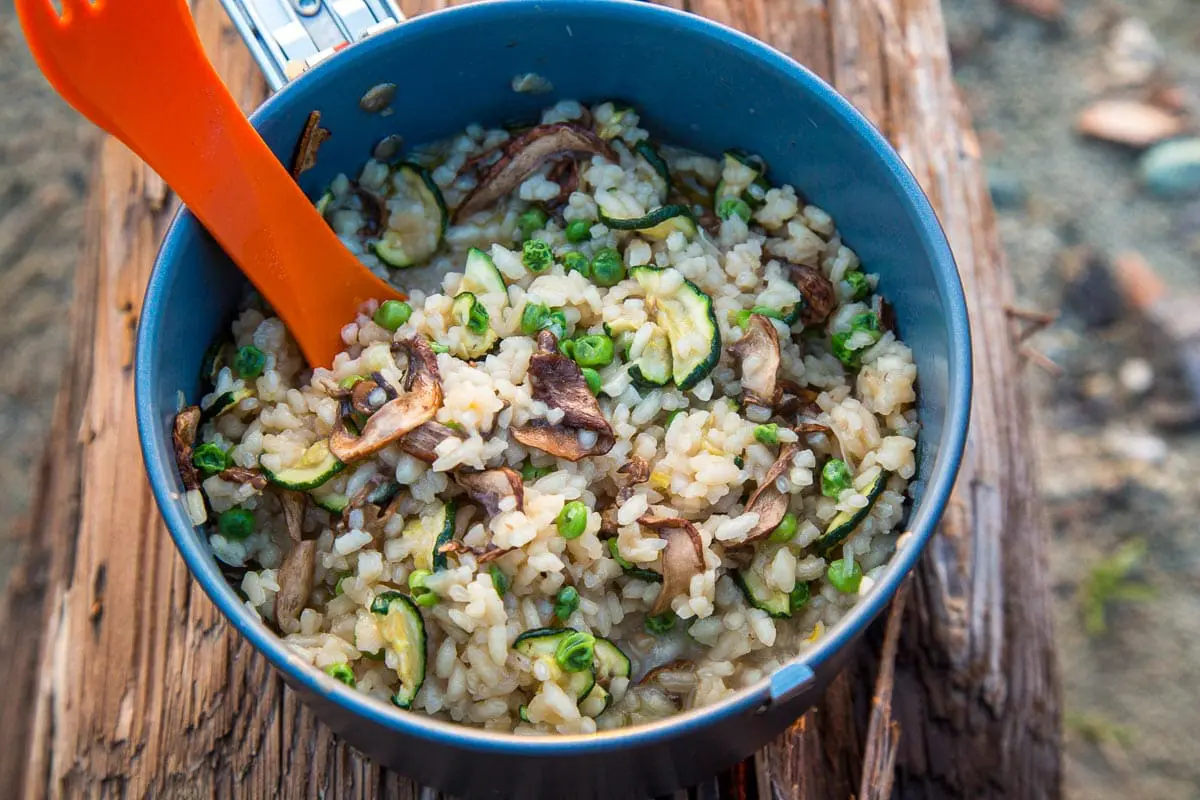
Hiking doesn’t mean sacrificing flavor. Discover the world of gourmet dehydrated meals that will satisfy your taste buds on the go.
- If you’re looking to elevate your hiking culinary experience, dehydrated meals are your go-to option. These aren’t your run-of-the-mill instant noodles; we’re talking about gourmet on the go!
- Dehydrated meals come in a wide variety of options, from classic pasta dishes to exotic Asian cuisine and everything in between. The beauty of these meals is that they’re incredibly lightweight and take up minimal space in your backpack. All you need is a source of hot water to rehydrate them, and you’ll have a hot, hearty meal on the road.
- To use dehydrated meals effectively, carry a portable stove or campfire equipment to heat your water. Once you have your hot water ready, simply pour it into the meal pouch, stir, and wait a few minutes. Voilà! You’ve got yourself a tasty, satisfying meal.
- The options for dehydrated meals are nearly endless, so you can enjoy a different gourmet experience on every hike. Whether you’re craving a spicy curry or a classic mac ‘n’ cheese, there’s a dehydrated meal to satisfy your taste buds.
- Keep in mind that you’ll need to pack out the empty meal pouch, so always adhere to Leave No Trace principles and ensure you dispose of your waste properly.
Jerky: The Protein Punch
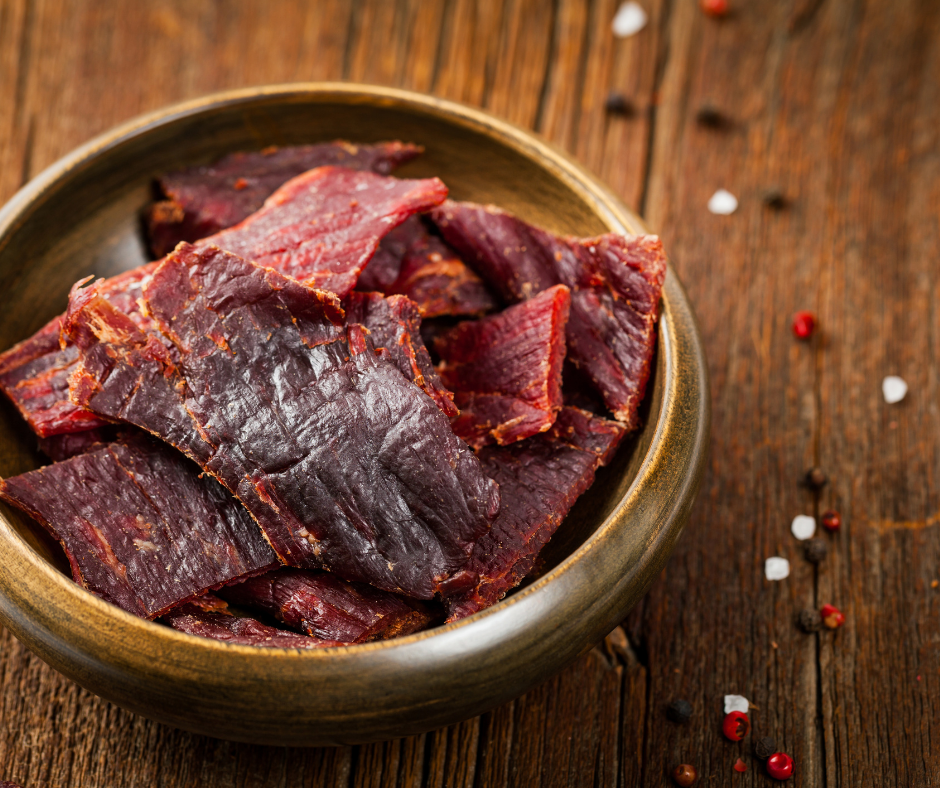
When it comes to hiking food ideas, jerky is your protein punch that keeps you going strong.
- If you’re looking for a protein-packed hiking snack that can endure the rough and tumble of the road, jerky is a fantastic choice. This dried and preserved meat treat has been a staple for adventurers for centuries, and it’s not going out of style anytime soon.
- Beef jerky is a classic option, but you’ll also find a variety of other meat options, including turkey, chicken, pork, and even exotic meats like bison or elk. The lean protein in jerky will help repair and build your muscles as you hike, making it an ideal choice for those demanding ascents and descents.
- Jerky is incredibly lightweight, doesn’t need refrigeration, and doesn’t take up much space in your backpack. Plus, it’s delicious and comes in a range of flavors, from spicy to sweet and savory.
- If you have dietary restrictions or preferences, you can also find plant-based jerky made from ingredients like mushrooms, tofu, or seitan. These options provide a similar chewy texture and flavor without the meat.
- For an extra nutritional boost, choose jerky with minimal additives and preservatives. High-quality, natural jerky will provide you with the protein and energy you need without unwanted additives.
Fresh Fruits and Veggies: Nature’s Bounty
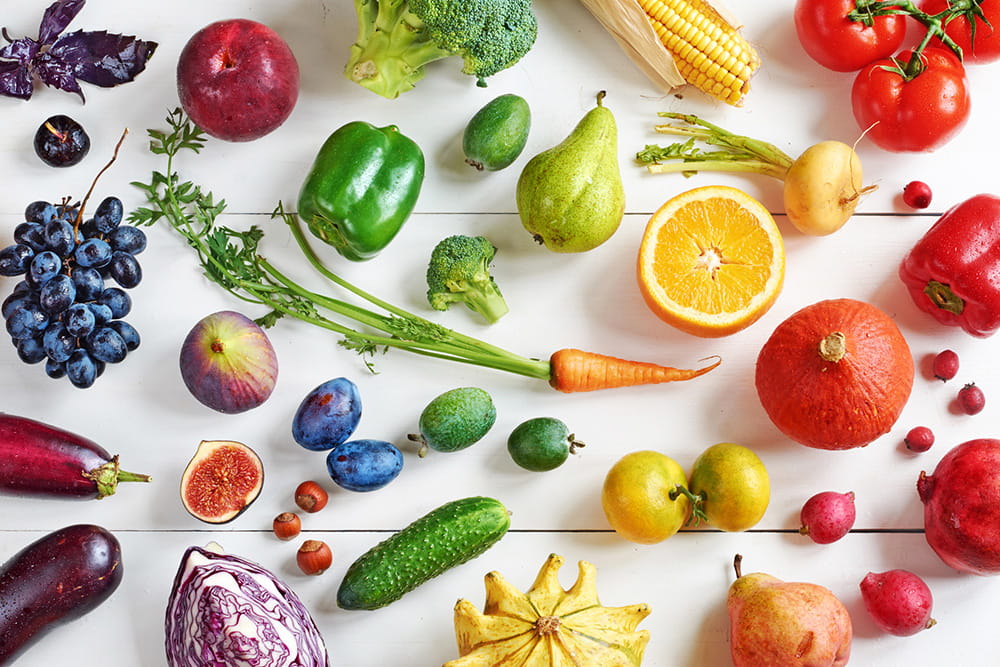
Don’t forget to pack a piece of nature’s bounty with you. Fresh fruits and veggies can add a touch of crunch and nutrition to your hiking adventure.
- While fresh fruits and vegetables might not be the most typical hiking food idea, they can be a delightful addition to your hiking menu, especially on shorter day hikes or when you have extra space in your backpack.
- Apples, carrots, celery, and bell peppers are excellent choices. They provide a satisfying crunch and refreshing taste, making them a welcome contrast to the more traditional hiking fare. Plus, they’re packed with vitamins and minerals that can help replenish your body as you trek through nature.
- Just be mindful of their perishable nature and potential weight. If you choose to bring fresh produce, try to consume it within the first day or two of your hike to prevent spoilage.
- An alternative is to opt for dried fruits or vegetable chips. These lightweight, non-perishable options provide the same satisfying crunch and nutrition without the risk of spoiling.
- Whether you choose fresh or dried, adding a touch of nature’s bounty to your hiking menu can make your journey even more enjoyable and nutritious.
Nut Butter Packets: Creamy Energy Boost

For a creamy energy boost on the go, don’t forget to pack nut butter packets.
- Nut butters, whether made from peanuts, almonds, or cashews, are energy-dense and packed with healthy fats and proteins. They’re the perfect choice when you need a quick boost of energy to conquer those steep inclines.
- Many brands offer single-serving nut butter packets, which are incredibly convenient for hiking. You can enjoy them on their own or spread them on crackers or bread for a more substantial snack. Nut butter is not only nutritious but also incredibly delicious, offering a rich and creamy texture that satisfies your taste buds.
- To prevent any mess in your backpack, opt for packets rather than jars. These are easy to carry, and you won’t have to worry about leaks or spills. Additionally, nut butter can be a valuable ingredient in a variety of hiking recipes, from sandwiches to oatmeal.
- Just remember that nut butter can be calorie-dense, so use it wisely, especially on longer hikes. It’s excellent for a quick energy boost but should be balanced with other hiking food ideas to ensure you’re getting a wide range of nutrients.
Hard Cheese: The Gourmet Touch

Add a gourmet touch to your hiking adventure with hard cheese. It’s the perfect combination of flavor and long-lasting energy.
- If you want to bring a touch of gourmet to your hiking adventure, hard cheese is an excellent choice. Cheese is calorie-dense, meaning a small amount provides a substantial source of energy, and it’s also a superb protein and fat source.
- The beauty of hard cheese, like cheddar or Parmesan, is that it doesn’t require refrigeration and can withstand the rigors of the road without spoiling. You can slice or cube it before your hike and store it in a resealable bag for easy access.
- Cheese pairs wonderfully with whole-grain crackers, dried fruits, or even jerky. The combination of flavors can elevate your hiking snack game to new heights. Just be mindful of the portion size, as cheese can be high in sodium, which can increase your thirst on the road.
- Consider this your license to add a bit of gourmet flair to your hiking adventures. A hunk of cheese and a mountain vista—what more could you ask for?
Instant Oatmeal: A Warm and Filling Breakfast
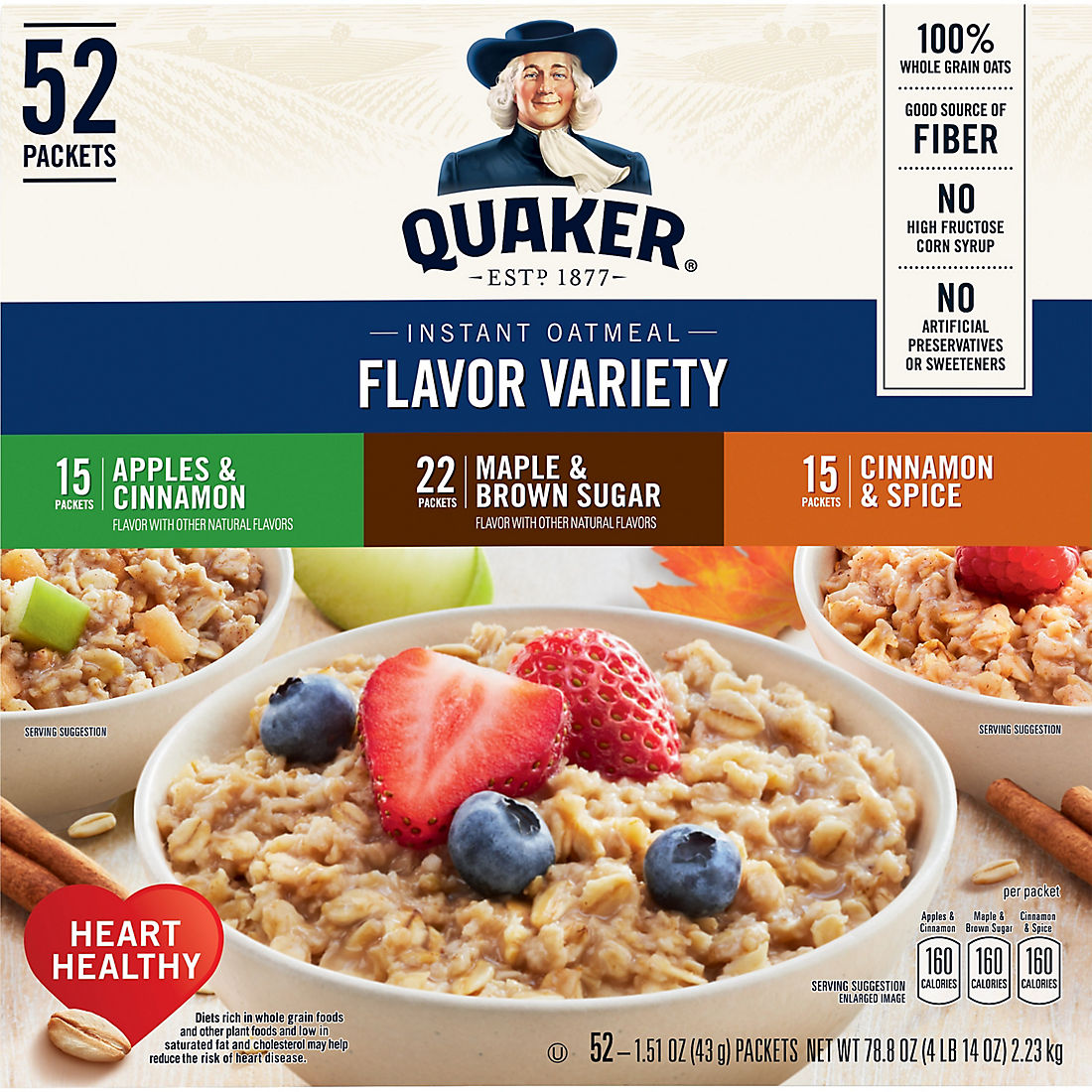
Start your hiking day right with instant oatmeal—a warm and filling breakfast option that’s easy to prepare on the go.
- Breakfast is the most important meal of the day, and that’s especially true when you’re hiking. It sets the tone for your adventure and provides the fuel you need to start your journey right. Instant oatmeal is the perfect solution, offering warmth, heartiness, and simplicity.
- Instant oatmeal comes in a variety of flavors, from classic cinnamon and sugar to fruit and nut medleys. You can easily find individual servings or portion out larger packets into smaller resealable bags to save space and keep your pack organized.
- To prepare instant oatmeal on the road, all you need is hot water, which you can heat using a portable stove or a campfire. Simply pour the water into the oatmeal, stir, and wait a few minutes. You’ll have a warm and filling breakfast that’s sure to fuel your hiking day with the right balance of carbohydrates and fiber.
- You can also enhance your oatmeal by adding some dried fruits, nuts, or a drizzle of honey for extra flavor and nutrients. It’s a hearty and comforting way to kick-start your morning on the road.
Tuna or Salmon Packets: Protein on Demand

When you need protein on demand, pack tuna or salmon packets—ideal for hikers looking for a protein-rich option.
- If you’re aiming to get your protein fix on the road, consider adding tuna or salmon packets to your hiking food repertoire. These convenient, single-serving pouches contain pre-cooked fish, often seasoned and ready to eat.
- Tuna and salmon are excellent sources of lean protein and omega-3 fatty acids, which can help reduce inflammation and support overall health. They also require no refrigeration and are easy to store in your backpack.
- To enjoy these on the road, you can eat them straight from the pouch, mix them into salads, or spread them on crackers. They’re a versatile option that can add a protein boost to any meal. Just be sure to pack out the empty pouches, as they can be quite smelly and attract unwanted wildlife.
- When selecting tuna or salmon packets, you’ll find various flavors and seasoning options, such as lemon pepper, hickory-smoked, or teriyaki. Choose the ones that appeal to your taste buds, and you’ll have a reliable protein source that’s ready whenever you need it.
Homemade Granola Bars: Personalized Delight
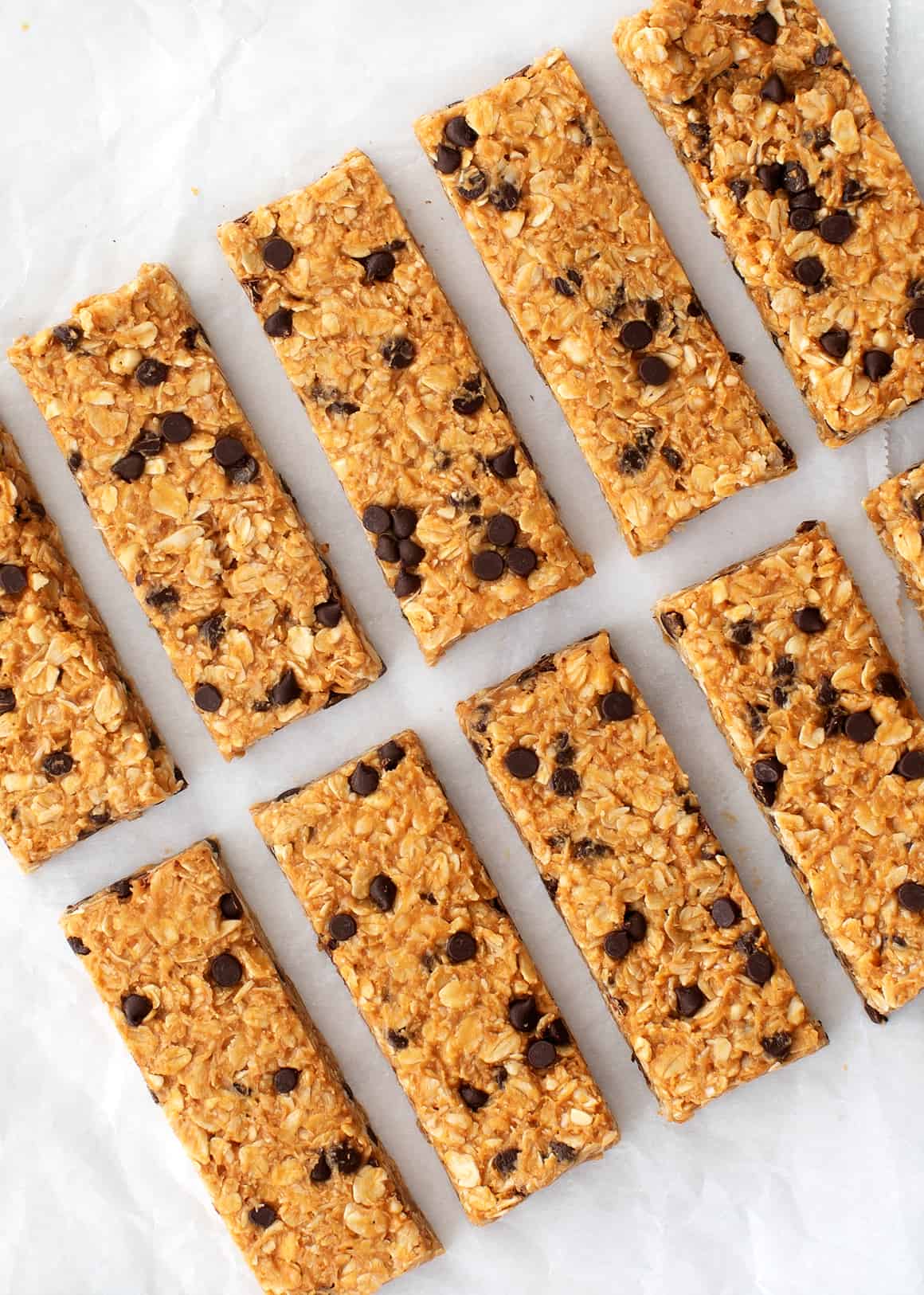
For a personalized delight, create your own homemade granola bars. Tailor them to your taste and dietary preferences.
- While store-bought energy bars are convenient, there’s something special about crafting your own homemade granola bars. Not only do they allow you to customize the ingredients to your liking, but they also provide a satisfying sense of accomplishment.
- To make your own granola bars, start with a base of rolled oats, honey or maple syrup, and nut butter. From there, you can add your favorite nuts, seeds, dried fruits, and even chocolate chips if you’re craving a sweet treat.
- The beauty of homemade granola bars is that you control the ingredients. If you have dietary restrictions or allergies, you can easily tailor the recipe to suit your needs. Want a gluten-free version? Substitute the oats with gluten-free rolled oats or quinoa flakes. Prefer a vegan option? Use a plant-based sweetener instead of honey.
- You can also experiment with various flavor combinations to keep things interesting. Whether you’re a fan of classic peanut butter and chocolate or a more adventurous type who enjoys the contrast of sweet and salty, homemade granola bars can cater to your preferences.
- Once you’ve created your bars, cut them into individual servings and wrap them in parchment paper or plastic wrap for easy access on the road. Homemade granola bars provide a personal touch to your hiking food experience, ensuring every bite is a delight.
Instant Coffee or Tea Bags: Morning Wake-Up Call

Don’t forget your morning wake-up call on the road. Pack instant coffee or tea bags to start your day right.
- For many hikers, the day doesn’t truly begin until that first sip of hot coffee or tea. If you’re one of these folks, make sure to include instant coffee or tea bags in your hiking gear.
- Instant coffee comes in single-serving packets, making it incredibly convenient for brewing a quick cup in the morning. Simply heat some water, pour it into your mug, add the instant coffee, stir, and savor the aroma and warmth of your mountain-side brew.
- Tea bags are another easy-to-pack option for tea enthusiasts. You can find a wide variety of flavors to suit your taste, from classic black tea to herbal blends. Tea provides a comforting start to your day and can also help you stay hydrated.
- These hot beverages are not only delicious but also offer that comforting morning ritual that can set the tone for a great day of hiking. Just remember to bring a portable stove or campfire equipment to heat your water.
Rice Cakes: Crunchy Satisfiers

For crunchy satisfiers on the road, don’t forget rice cakes. They offer a delightful crunch and make a great base for toppings.
- Rice cakes are a versatile and lightweight hiking food option, ideal for those who crave a bit of crunch on the road. They come in various flavors, including plain, salted, or even savory options like cheddar or caramel.
- These crunchy delights can be enjoyed on their own or used as a base for various toppings. For a quick energy boost, spread nut butter or cheese on them. Alternatively, combine them with jerky, tuna, or salmon for a more substantial snack.
- Rice cakes are low in calories and fat, making them a good choice if you’re watching your energy intake. They provide a satisfying texture that can break the monotony of more typical hiking snacks.
- You can also find mini rice cake packs that are portioned out for your convenience, allowing you to manage your snacking easily on the road. Rice cakes are an excellent addition to your hiking food ideas, adding that much-needed crunch and variety to your menu.
Conclusion
When it comes to the best backpacking food ideas, the options are as vast and varied as the roads themselves. Whether you’re venturing out for a short day hike or planning an extended backpacking trip, it’s essential to select foods that not only fuel your adventure but also delight your taste buds. The hiking food ideas mentioned in this guide are designed to cater to various dietary preferences and needs, ensuring you’re well-prepared to conquer any trail that beckons.
Remember that the key to a successful hiking experience is a well-balanced diet that covers your nutritional requirements while offering enjoyment along the way. The next time you embark on a hiking adventure, use this guide to assemble a menu that fuels your body, satisfies your cravings, and makes your journey unforgettable. Happy hiking and happy eating!
Don’t forget to hydrate yourself!
Bonus Ideas:
Protien Powder
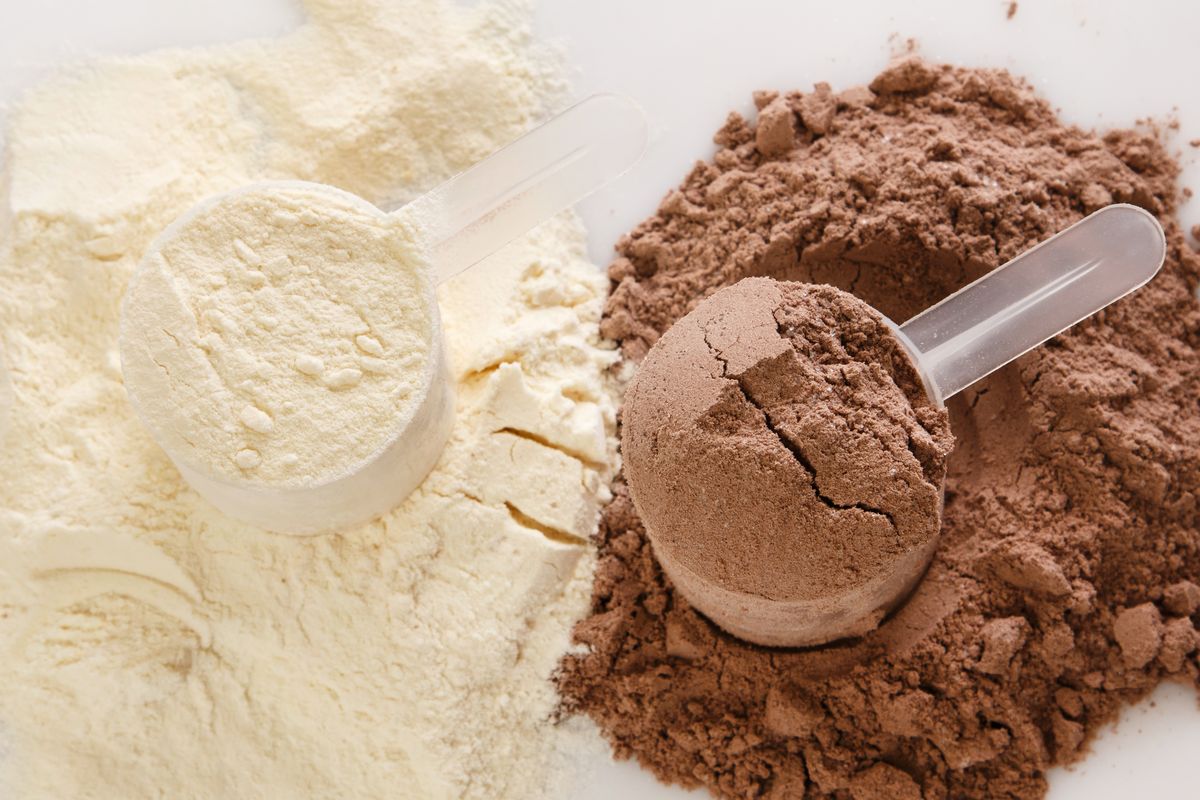
Protein Bars

Greek Yougurt
:max_bytes(150000):strip_icc():format(webp)/health-benefits-of-greek-yogurt-GettyImages-1197663691-801c5bf616774d0398351f7fbf36badb.jpg)
FAQ: Fueling Your Hiking Adventure with the Best Hiking Food Ideas
What’s the importance of trail nutrition when hiking?
- Trail nutrition is crucial because it ensures you have the energy and sustenance needed to complete your hike comfortably and safely. Proper nutrition helps maintain stamina, strength, and overall well-being throughout your outdoor adventure.
How can I maintain the freshness of my food on longer hikes?
- To keep your food fresh on longer hikes, choose non-perishable options like trail mix, energy bars, and dehydrated meals. Additionally, use airtight containers or resealable bags to prevent spoilage and contamination. Pack perishable items in a small cooler if necessary and replenish ice as needed.
What are the essential nutrients to consider when planning a hiking menu?
- The key nutrients to consider are carbohydrates for energy, proteins for muscle repair and strength, healthy fats for sustained endurance, vitamins and minerals for overall health, and hydration to prevent dehydration. A well-rounded diet should include a balance of these nutrients.
How do I prevent wildlife encounters with my food on the road?
- To prevent wildlife encounters, follow Leave No Trace principles and properly store your food. Use bear-resistant containers or hang your food in a bear bag from a tree when camping. Keep a clean campsite and avoid leaving food scraps behind.
What are the best food options for those with dietary restrictions or allergies?
- There are plenty of options for hikers with dietary restrictions or allergies. Look for gluten-free energy bars, plant-based jerky, nut butter packets made from alternative nuts, or lactose-free cheese. Additionally, creating your own homemade granola bars allows you to control the ingredients to accommodate your specific needs.
How much food should i eat?
- While there are no strict rules, it’s generally best to avoid foods that are heavy and contain alot of fat and sugar. At times, these foods could leave you worse off than before…
How can I make my own dehydrated meals for hiking?
- Making your own dehydrated meals can be a fun and cost-effective option. Start by cooking your favorite meal, then spread it out on a dehydrator tray or parchment paper in a thin layer. Dehydrate it until it’s dry and brittle, then package it in airtight containers. You can rehydrate these meals on the road by adding hot water.
Is it necessary to have a campfire or stove to enjoy hot meals on the road?
- While it’s not absolutely necessary, having a portable stove or campfire equipment significantly expands your meal options. Hot meals provide comfort and variety on the hike, and they can be easily prepared with the right equipment. However, if you prefer cold meals or quick, no-cook options, you can still have a satisfying hiking experience.

